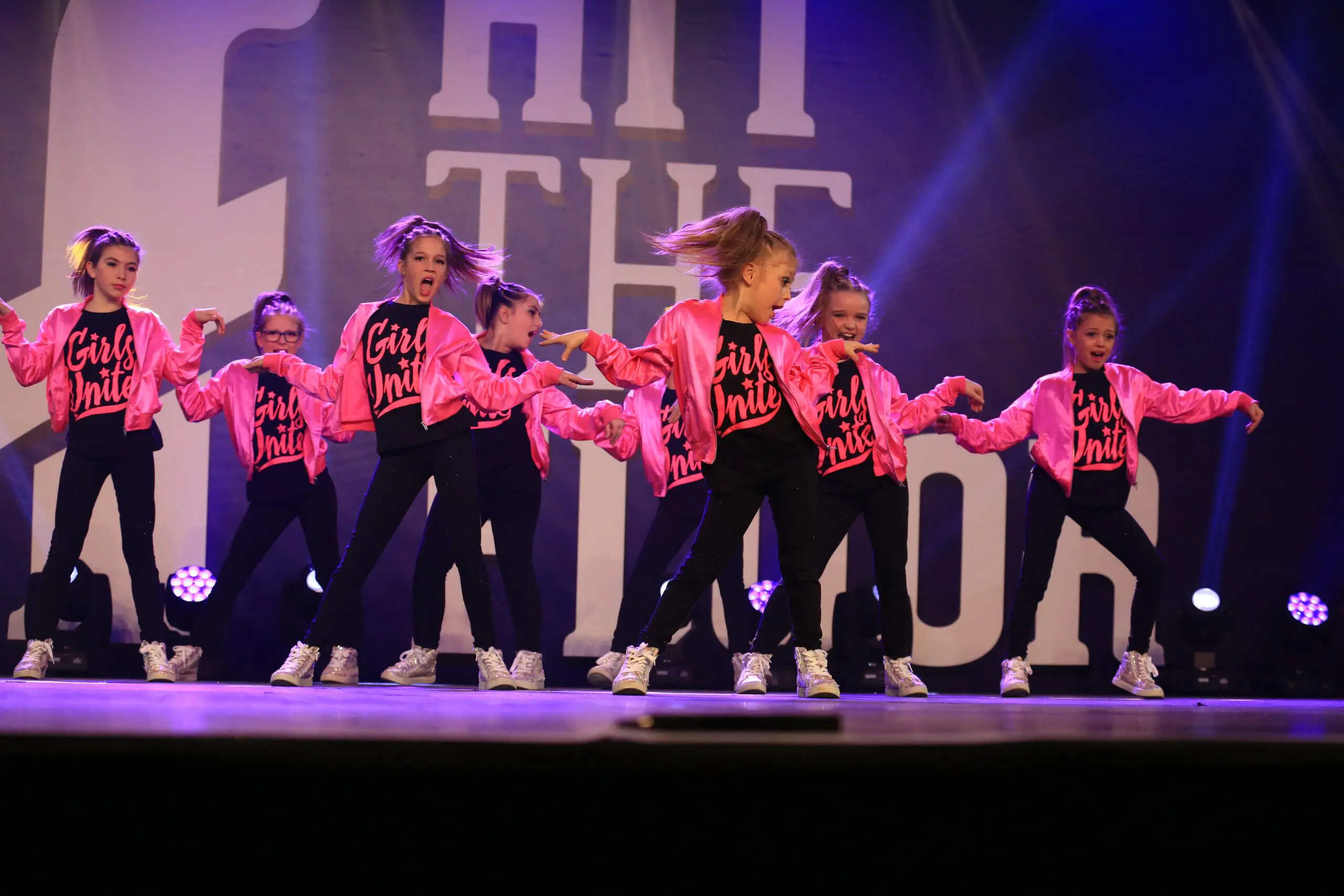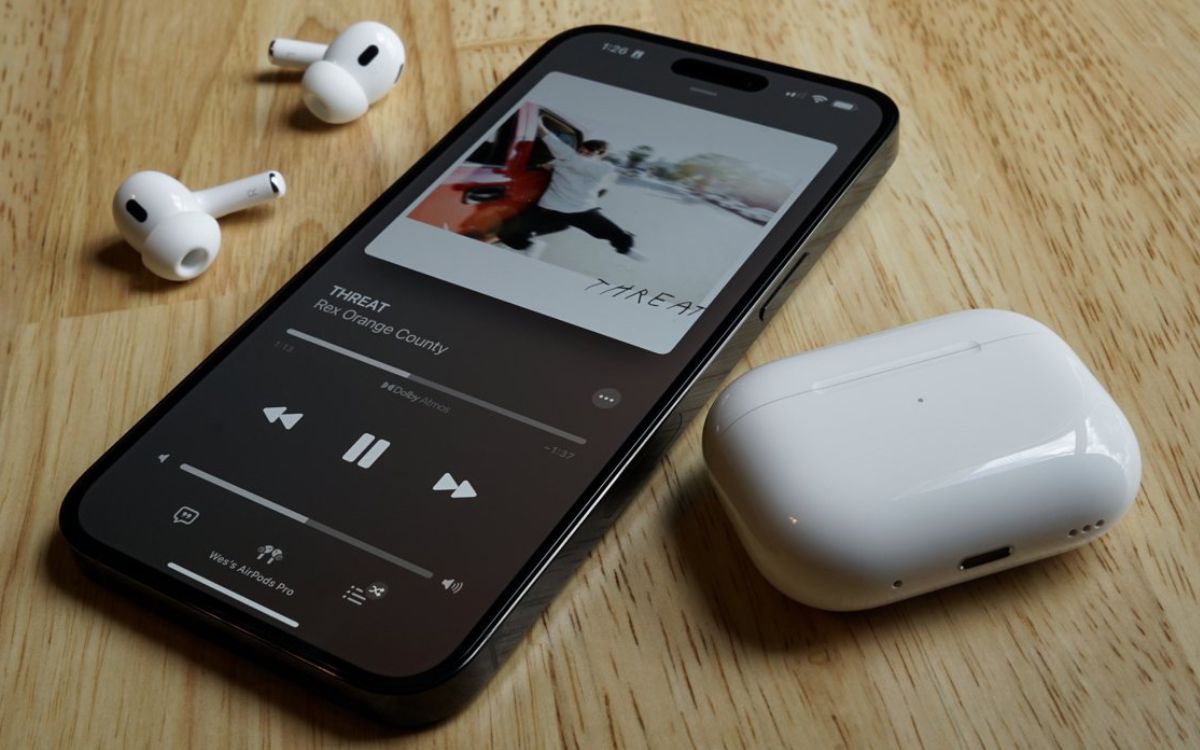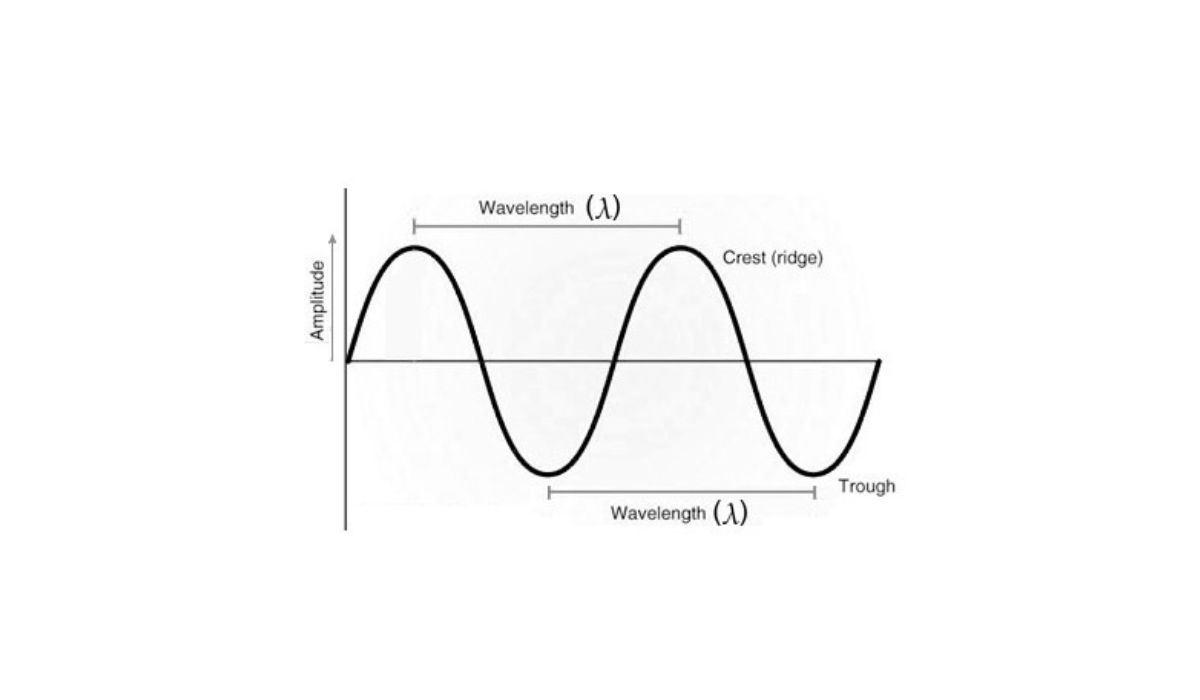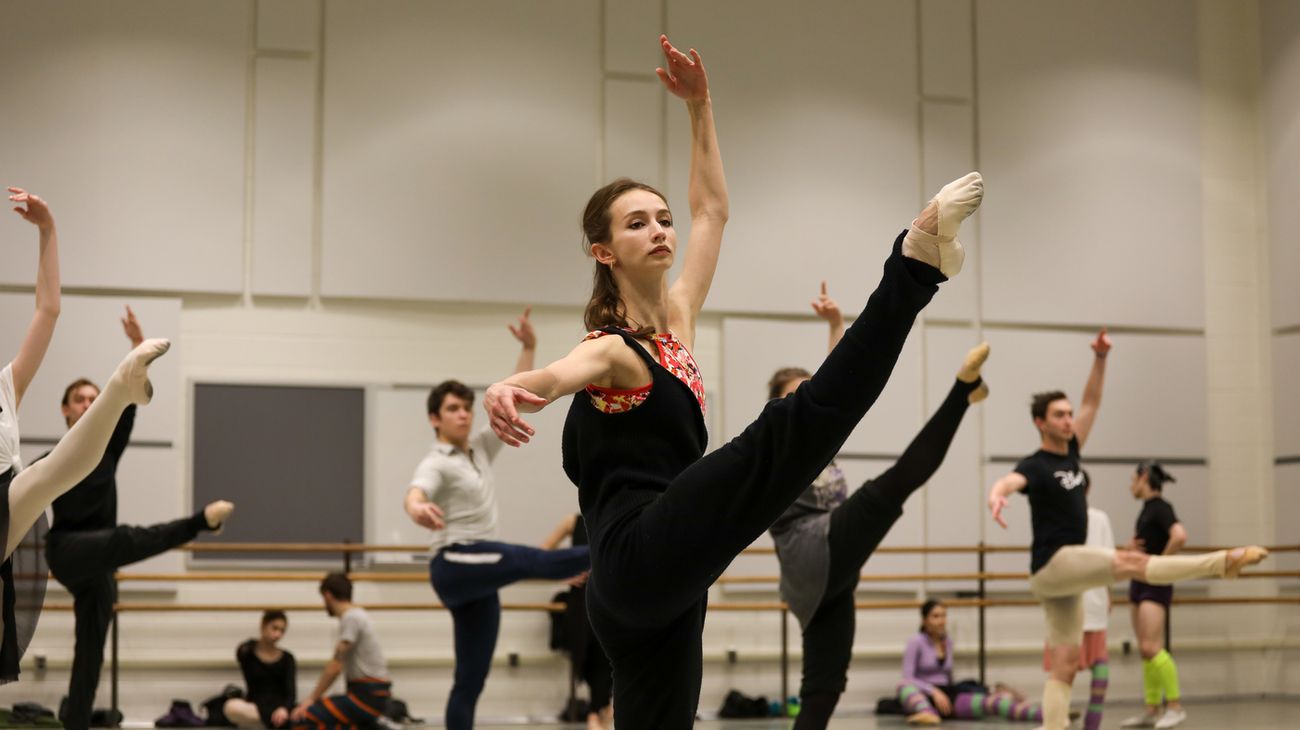Home>Production & Technology>Musician>How To Find Jobs As A Professional Musician
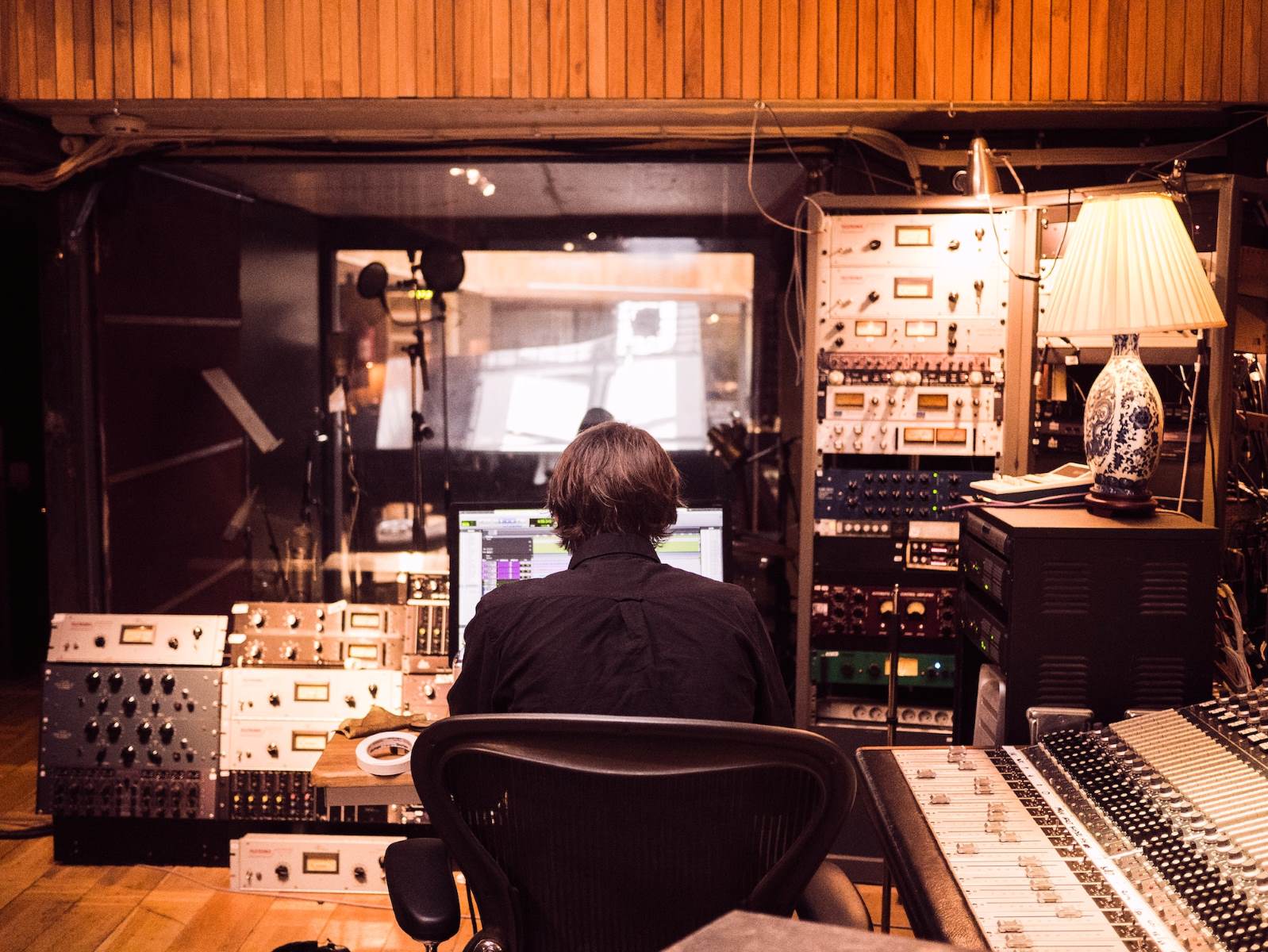

Musician
How To Find Jobs As A Professional Musician
Published: January 28, 2024
Looking for job opportunities as a professional musician? Discover effective strategies and tips on how to land the perfect music gig in this comprehensive guide.
(Many of the links in this article redirect to a specific reviewed product. Your purchase of these products through affiliate links helps to generate commission for AudioLover.com, at no extra cost. Learn more)
Table of Contents
- Introduction
- Networking and Connections
- Utilizing Online Platforms
- Showcasing Your Skills
- Collaborating with Other Musicians
- Building a Strong Online Presence
- Seeking Opportunities in the Music Industry
- Marketing Yourself as a Musician
- Using Music Industry Resources
- Working with Music Agencies and Event Planners
- Tips for Navigating Auditions and Job Interviews
- Building a Diverse Portfolio
- Maintaining a Professional Image
- Negotiating Contracts and Payments
- Dealing with Rejection and Building Resilience
- Conclusion
Introduction
Being a professional musician is a dream for many individuals who have a passion for music. Whether you’re a talented singer, instrumentalist, or composer, finding opportunities to showcase your skills and make a living from your talent is crucial. In today’s competitive music industry, it’s essential to have a strategic approach to finding jobs and gaining recognition.
In this article, we will explore various strategies and techniques to help you navigate the world of professional music and increase your chances of finding rewarding opportunities. From networking and building connections to utilizing online platforms and marketing yourself effectively, we will cover a wide range of topics to assist you in your journey as a musician.
Networking and connections play a crucial role in the music industry. Building relationships with other musicians, industry professionals, and influential individuals can open doors to new gigs, collaborations, and career opportunities. Attending music festivals, conferences, and industry events can provide valuable networking opportunities. Additionally, reaching out to local music communities and participating in open mic nights can help you connect with fellow musicians and gain exposure.
Utilizing online platforms is essential in today’s digital age. Websites and social media platforms allow you to showcase your music, engage with fans, and connect with industry professionals. Creating a professional website with high-quality recordings, videos, and a bio can make a strong impression on potential employers. Additionally, actively managing your social media accounts and sharing your latest work can help you build a loyal fan base and attract attention from music industry insiders.
Showcasing your skills is crucial for landing gigs and gaining recognition. Consider creating a demo reel or portfolio that highlights your best performances and compositions. This can be shared with potential employers, agents, or booking agencies to demonstrate your talent and versatility. Collaborating with other musicians can also expand your network and provide opportunities to showcase your skills in different musical genres.
Building a strong online presence is vital in today’s digital landscape. Utilize search engine optimization techniques to improve your visibility on search engines and attract more opportunities. This can include optimizing your website and social media profiles with relevant keywords and creating engaging and shareable content. Maintaining a consistent and professional online image will help you stand out and attract the attention of industry professionals.
In the next sections, we will delve deeper into these strategies and explore additional techniques for finding jobs as a professional musician. It’s important to approach your career with dedication, perseverance, and a willingness to adapt as the music industry evolves. So, let’s dive in and discover how you can take your music career to the next level!
Networking and Connections
In the music industry, building a strong network of connections is essential for finding job opportunities and advancing your career. Networking allows you to meet influential individuals, collaborate with other musicians, and gain access to valuable resources. Here are some strategies to help you enhance your networking skills:
– Attend Music Events: Make an effort to attend music festivals, conferences, and industry events in your area. These gatherings provide excellent networking opportunities where you can meet industry professionals, fellow musicians, and potential employers. Make sure to bring business cards or promotional materials to share with others and follow up with any leads after the event.
– Join Music Communities: Engage with local music communities, such as open mic nights, jam sessions, or music clubs. These communities are often filled with talented musicians who can become valuable connections. Participating in these events not only allows you to showcase your skills but also provides opportunities to collaborate with others and expand your network.
– Utilize Online Platforms: Leverage social media, music forums, and online communities to connect with musicians, industry professionals, and potential employers. Joining music-related groups on platforms like Facebook and LinkedIn can provide networking opportunities and allow you to contribute to discussions and share your expertise.
– Reach Out to Industry Professionals: Don’t be afraid to directly contact industry professionals who you admire or would like to work with. Whether it’s a renowned producer, a booking agent, or a music director, send a courteous and professional email introducing yourself and expressing your interest in collaborating or working together. Personalized messages can leave a lasting impression and open doors for future opportunities.
– Collaborate with Other Musicians: Collaboration is an excellent way to expand your network and gain exposure. Reach out to other musicians who you admire or whose musical style complements your own. Collaborating on projects, performances, or recordings can lead to new opportunities and connections, as well as foster creativity and growth.
– Support Local Artists: Attend local shows and performances, and show support for other musicians in your community. This not only allows you to enjoy live music but also provides opportunities to connect with artists and music enthusiasts who share a similar passion. Building relationships and supporting others can lead to reciprocal support and new connections in the future.
– Maintain Relationships: Networking is an ongoing process, so it’s essential to nurture and maintain relationships with your connections. Regularly reach out to industry professionals, fellow musicians, and potential employers to stay on their radar. Share updates about your musical endeavors and offer support or collaboration whenever possible. Networking is a two-way street, and fostering genuine connections can lead to long-term opportunities.
Remember, networking should be approached with authenticity and a genuine interest in building meaningful connections. Focus on developing relationships rather than solely seeking job opportunities. By establishing a strong network, you increase your chances of discovering new gigs, collaborating on exciting projects, and advancing your career as a professional musician.
Utilizing Online Platforms
In today’s digital age, online platforms play a critical role in the success of professional musicians. Utilizing these platforms effectively can help you reach a wider audience, promote your music, and attract potential job opportunities. Here are some strategies to maximize the potential of online platforms:
– Create and Optimize Your Website: Having a professional website is essential for showcasing your work and providing a hub of information for potential employers and fans. Ensure that your website is visually appealing, easy to navigate, and includes essential information such as your bio, music samples or videos, upcoming performances, and contact details. Optimize your website with relevant keywords to enhance your search engine visibility.
– Leverage Social Media: Social media platforms such as Facebook, Instagram, Twitter, and YouTube provide powerful tools for promoting your music and connecting with your audience. Consistently share high-quality content, including music videos, live performances, behind-the-scenes footage, and updates about upcoming projects. Engage with your followers, respond to comments, and actively participate in relevant music communities to expand your reach.
– Utilize Streaming Platforms: Music streaming platforms like Spotify, Apple Music, and SoundCloud have become increasingly popular in recent years. Upload your music to these platforms to reach a global audience and potentially be discovered by industry professionals. Collaborate with influencers or curate playlists related to your genre to increase your exposure and attract new listeners.
– Collaborate with Influencers: Influencers and content creators in the music industry have significant reach and influence. Collaborate with popular music bloggers, YouTube channels, or podcasts to gain exposure and potentially reach new audiences. For example, you can offer to provide exclusive interviews, acoustic performances, or behind-the-scenes glimpses of your music-making process.
– Engage with Your Audience: Interacting and building relationships with your fans is crucial for building a loyal following and attracting job opportunities. Respond to comments and messages promptly, organize Q&A sessions, and involve your audience in the creative process through polls or voting for cover songs or upcoming projects. Showcasing your dedication to your fans can lead to increased support and word-of-mouth promotion.
– Utilize Online Music Communities: Join online music communities and forums dedicated to your genre or specific instruments. Actively participate in discussions, provide valuable insights, and share your work when appropriate. Such communities can be a great source of networking opportunities, feedback, and exposure to potential job offers or collaboration opportunities.
– Online Music Competitions and Contests: Participating in online music competitions and contests can provide exposure and potentially lead to job opportunities. Research reputable competitions in your genre and submit your best work. Winning or placing in these competitions can enhance your credibility and attract attention from industry professionals.
Remember, consistency and quality are key when utilizing online platforms. Regularly update your content, engage with your audience, and monitor your online presence. Utilize analytics tools to measure your reach and engagement to refine your online strategies. By harnessing the power of online platforms, you can amplify your music career and increase your chances of finding jobs as a professional musician.
Showcasing Your Skills
As a professional musician, it’s crucial to effectively showcase your skills to attract job opportunities and gain recognition for your talent. Here are some strategies to help you showcase your skills and make a lasting impression:
– Create a Demo Reel: Put together a professionally made demo reel that showcases your best performances and highlights your musical expertise. Include a variety of songs or compositions that demonstrate your versatility and range. A well-crafted demo reel can serve as a powerful tool to impress potential employers, booking agents, or music directors.
– Develop an Engaging Live Performance: Your live performances have the potential to leave a lasting impact on your audience and industry professionals. Pay attention to every aspect of your performance, including stage presence, musicality, and audience interaction. Consider incorporating unique elements or visual aspects that make your performance memorable and stand out from the rest.
– Collaborate with Other Musicians: Collaborating with other musicians opens doors to new musical styles and opportunities to showcase your skills. Working with artists from different genres or backgrounds can help you expand your audience and demonstrate your adaptability and versatility as a musician. Collaborative projects can include joint performances, recorded tracks, or even music videos.
– Record and Release High-Quality Music: The quality of your recorded music speaks volumes about your skills and professionalism. Invest in good recording equipment or find a professional studio to ensure that your music sounds polished and captures the essence of your artistry. Release your music on platforms such as iTunes, Spotify, and Bandcamp to make it accessible to a wider audience.
– Live Streaming Performances: In the age of digital connectivity, live streaming platforms like YouTube, Facebook, or Instagram can be valuable tools for showcasing your skills. Consider live streaming performances, practice sessions, or intimate acoustic sessions. Engage with your viewers and use this platform to not only promote your music but also interact with your audience on a more personal level.
– Participate in Music Competitions: Music competitions provide a platform to showcase your skills to a wider audience and gain recognition. Research reputable competitions in your genre and submit your best work. Winning or placing in these competitions can offer exposure, validation, and potential job opportunities.
– Music Videos: Visual representation can greatly enhance the impact of your music. Creating music videos that complement your songs can give your audience a more interactive and engaging experience. Consider collaborating with a director or videographer to create visually stunning videos that align with the message and emotions of your music.
– Perform at Local Events and Open Mic Nights: Don’t underestimate the power of local events and open mic nights. These opportunities allow you to engage with a live audience, gain experience performing in different settings, and potentially attract the attention of industry professionals who may be in attendance. Treat every performance as a chance to showcase your skills and make connections.
– Create a Strong Online Presence: In addition to live performances, having a strong online presence is essential for showcasing your skills to a wider audience. Create a professional website and social media profiles where you can share your music, interact with fans, and showcase your skills through videos, photographs, and updates about your musical journey.
Remember, showcasing your skills involves more than just playing your instrument or singing. It’s about presenting your unique style, charisma, and passion to captivate your audience. These strategies will help you create a compelling image as a musician and increase your chances of attracting job opportunities and recognition in the music industry.
Collaborating with Other Musicians
Collaboration is a powerful tool for professional musicians. Working with other musicians not only allows for creative exploration but also opens doors to new opportunities and helps to expand your network. Here are some strategies to effectively collaborate with other musicians:
– Seek Out Complementary Artists: Look for musicians whose style and skills complement your own. Seek out artists who have a similar musical vision or who bring a fresh perspective to your music. Collaborating with musicians who have different backgrounds and styles can lead to unique and exciting creative projects.
– Attend Jam Sessions and Open Mic Nights: Participating in jam sessions and open mic nights is an excellent way to meet other musicians and find potential collaborators. These informal settings foster spontaneity and allow for on-the-spot collaborations. Be open to impromptu performances and don’t hesitate to approach other musicians afterward to discuss the possibility of working together on future projects.
– Online Collaboration: The internet has made it easier than ever to collaborate with musicians from all around the world. Platforms like Soundtrap, Splice, and Kompoz allow you to collaborate remotely by sharing and working on tracks online. This opens up a world of possibilities for collaborating with musicians you may never have had the chance to meet in person.
– Participate in Music Projects and Contests: Keep an eye out for music projects and contests that require collaboration. For example, songwriting contests might pair up instrumentalists with lyricists, or remix contests may require you to collaborate with other artists to create a unique version of a song. Participating in these projects not only allows you to collaborate but also exposes your work to a wider audience.
– Collaborate Across Genres: Don’t be afraid to explore collaborations outside of your usual genre. By working with musicians from different genres, you can bring new perspectives and ideas into your music. Cross-genre collaborations can create unique sounds that appeal to a broader range of listeners and open doors to different types of opportunities.
– Create a Shared Vision: Before starting a collaboration, it is crucial to have a clear understanding of your shared vision and goals. Discuss your expectations, musical preferences, and the desired outcome of the collaboration. This will help ensure that everyone is on the same page and working towards a unified vision.
– Communicate and Respect Each Other’s Ideas: Effective communication is essential for successful collaborations. Be open to sharing your ideas and receptive to the ideas of others. Respect each other’s artistic choices and provide constructive feedback. Collaboration is a give-and-take process, and maintaining a positive and respectful working relationship will result in a more fruitful partnership.
– Share Resources and Promote Each Other: Collaboration is not just about creating music together, it’s also about supporting each other’s careers. Share resources, contacts, and opportunities with your collaborators. Promote each other’s work through your social media platforms, by featuring each other on your websites, or by organizing joint performances. Building a strong network and supporting each other’s success will benefit everyone involved.
– Document the Collaboration: Once the collaboration is complete, document the process and share it with your fans. This can be in the form of behind-the-scenes videos, interviews, or blog posts that provide insights into the creative process. Documenting your collaborations not only allows you to showcase your work but also strengthens the bond between you and your collaborators.
Collaborating with other musicians can enhance your creative process, introduce you to new ideas, and provide opportunities for growth. By actively seeking out collaborations, embracing diverse influences, and maintaining open lines of communication, you can forge meaningful connections and create musical projects that resonate with both your audience and industry professionals.
Building a Strong Online Presence
In today’s digital age, having a strong online presence is crucial for musicians looking to establish their brand and attract job opportunities. Building a robust online presence allows you to reach a wider audience and connect with industry professionals. Here are some strategies to help you build a strong online presence:
– Create a Professional Website: Your website serves as your online hub and represents your brand. Invest in creating a professional and visually appealing website that showcases your music, biography, upcoming events, and contact information. Ensure that your website is user-friendly and optimized for mobile devices.
– Engage on Social Media: Social media platforms are powerful tools for connecting with your audience and building a fan base. Create profiles on popular platforms like Facebook, Instagram, Twitter, and YouTube, and consistently share engaging and relevant content. Interact with your followers, respond to comments, and actively participate in music-related discussions.
– Utilize Search Engine Optimization (SEO): Implement SEO strategies to improve the visibility of your online platforms in search engine results. Research keywords relevant to your music and incorporate them naturally into your website content, blog posts, and social media descriptions. This will increase the likelihood of your music being discovered by industry professionals and potential employers.
– Regularly Release New Content: It’s important to consistently release new and high-quality content to keep your audience engaged. This could include new music, music videos, behind-the-scenes footage, live performances, or even covers of popular songs. Regularly updating your online platforms with fresh content helps to maintain your presence and keeps your audience coming back for more.
– Engage with Your Audience: Actively engage with your audience by responding to comments, messages, and inquiries in a timely manner. Show your appreciation for their support and make an effort to build a genuine connection with your fans. This creates a sense of community and loyalty around your brand.
– Collaborate with Influencers: Collaborating with influencers in the music industry, such as popular bloggers or YouTubers, can help you expand your reach and attract new followers. Partner with influencers who align with your music style and audience demographics. Perform live sessions, interviews, or acoustic covers for their platforms to broaden your exposure.
– Submit Your Music to Online Directories and Streaming Platforms: Submit your music to online directories and streaming platforms like Bandcamp, SoundCloud, and Spotify. This increases your chances of being discovered by fans and industry professionals alike. Remember to optimize your profiles with relevant keywords and engaging descriptions.
– Develop a Consistent Brand Identity: Consistency is key when building your online presence. Develop a consistent brand identity across your website, social media profiles, and other online platforms. Use consistent imagery, logos, and color schemes to create a cohesive and recognizable brand that your audience can easily identify.
– Show Authenticity and Personalization: Authenticity is essential when building an online presence. Share personal stories, experiences, and insights that let your audience get to know you as a person and as an artist. This helps create a genuine connection that resonates with your fans and potential employers.
– Leverage Online Music Communities: Engage with online music communities and forums where musicians and fans gather. Share your expertise and insights, participate in discussions, and provide valuable input. This helps establish you as an authority in your field and increases your visibility within the community.
– Monitor Your Online Reputation: Regularly monitor your online presence and reputation. Set up Google Alerts for your name or brand, and be aware of what people are saying about you online. Address any negative comments or feedback professionally and promptly, and strive to maintain a positive and professional image.
Building a strong online presence takes time, effort, and consistency. By following these strategies, you can effectively showcase your music, connect with your audience, and attract job opportunities in the music industry.
Seeking Opportunities in the Music Industry
The music industry offers a myriad of opportunities for professional musicians to showcase their talent and advance their careers. However, finding these opportunities can sometimes be challenging. Here are some strategies to help you seek and seize opportunities in the music industry:
– Stay Informed: Stay updated on the latest news and trends in the music industry. Follow music blogs, industry publications, and reputable websites to stay informed about upcoming events, festivals, auditions, and job opportunities. Being aware of industry happenings allows you to be proactive in seeking out opportunities that align with your interests and career goals.
– Join Music Associations and Organizations: Joining music associations, unions, or organizations can provide valuable resources, networking opportunities, and access to exclusive job listings. These associations often organize events, seminars, and workshops that allow you to connect with fellow musicians and industry professionals. Stay active within these communities to increase your visibility and stay informed about potential job opportunities.
– Research Music Festivals and Events: Music festivals and events attract a wide range of artists and industry professionals. Research festivals and events that align with your music genre or style and submit your application to perform. Even if you don’t get selected, attending these events provides networking opportunities and the chance to connect with industry insiders.
– Attend Music Conferences and Workshops: Music conferences and workshops offer valuable insights, networking opportunities, and educational resources. These events often feature panel discussions, keynote speakers, and industry professionals who share their expertise. Attend these events to expand your knowledge, meet like-minded individuals, and connect with potential employers or collaborators.
– Build Relationships with Venue Owners and Promoters: Developing relationships with venue owners, managers, and promoters can help you gain regular performance opportunities. Research local venues that host live music and reach out to introduce yourself and discuss potential performance slots. Attend their shows and engage with them to maintain a good rapport.
– Seek Out Music Agencies and Managers: Music agencies and artist managers can help you secure gigs, negotiate contracts, and manage your career. Research reputable agencies or managers who specialize in your genre or style of music and reach out to express your interest in working together. These professionals often have industry connections and can help you navigate the music industry more effectively.
– Utilize Online Job Platforms: Online job platforms dedicated to the music industry, such as Sonicbids, GigSalad, or Bandmix, can connect you with potential job opportunities. Create a compelling profile that highlights your skills, experience, and repertoire. Regularly check these platforms for new job listings and submit applications for gigs that match your preferences.
– Leverage Social Media and Online Platforms: Utilize social media platforms and online marketplaces to showcase your talent and attract job opportunities. Engage with industry professionals, share your work, and actively participate in relevant music communities. Some online platforms, like SoundBetter, allow you to offer your services as a musician, songwriter, or producer, connecting you with clients seeking professional music services.
– Networking: Networking is essential for finding job opportunities in the music industry. Attend industry events, open mic nights, and music-related workshops to meet fellow musicians, industry professionals, and potential collaborators. Actively participate in online music communities and engage with other musicians to expand your network. Building genuine relationships can lead to collaborations, recommendations, and valuable job opportunities.
Remember, seeking opportunities in the music industry requires dedication, perseverance, and a proactive mindset. By staying informed, building relationships, and utilizing various platforms and resources available, you can increase your chances of finding rewarding opportunities to showcase your talent and further your career as a professional musician.
Marketing Yourself as a Musician
Marketing yourself effectively is crucial for standing out in the competitive music industry and attracting job opportunities. As a musician, you are not only selling your music but also your brand and unique artistic identity. Here are some strategies to help you effectively market yourself as a musician:
– Define Your Brand: Take the time to define your brand as a musician. Identify your musical style, image, and the unique qualities that set you apart from others. Develop a clear understanding of your target audience and what makes your music resonate with them. This will guide your marketing efforts and help you connect with the right audience.
– Create a Compelling Bio: Your bio is a valuable marketing tool that provides insights into your musical journey and accomplishments. Craft a compelling and concise bio that showcases your musical background, influences, achievements, and unique selling points. Communicate your story in a way that engages your audience and makes them want to learn more about you.
– Develop a Professional Press Kit: A press kit is a collection of promotional materials that conveys your brand and musical identity to media outlets, event promoters, and potential employers. It typically includes your bio, high-quality photos, press reviews, past performance history, and any notable accomplishments. Having a well-organized and visually appealing press kit can significantly enhance your professional image.
– Utilize Social Media Effectively: Social media platforms serve as powerful marketing tools for musicians. Create professional and engaging profiles on platforms such as Facebook, Instagram, Twitter, and YouTube. Consistently share high-quality content, including music videos, live performances, behind-the-scenes footage, and updates about your music career. Interact with your audience, respond to comments, and actively participate in relevant music communities to build a loyal fanbase.
– Engage with Your Audience: Building a genuine connection with your audience is essential for effective marketing. Respond to comments, messages, and inquiries in a timely and authentic manner. Show appreciation for your fans’ support and involve them in your music journey by sharing personal stories, conducting Q&A sessions, or asking for their opinions on creative decisions. The more engaged your audience feels, the stronger your brand loyalty becomes.
– Collaborate and Cross-Promote: Collaborating with other musicians, content creators, or influencers in the music industry can expose you to new audiences and expand your reach. Seek out opportunities for collaboration, such as joint performances, recorded tracks, or guest appearances on each other’s platforms. Cross-promote each other’s work to leverage each other’s fanbase and increase your visibility.
– Live Performances: Live performances are an excellent opportunity to market yourself as a musician. Give memorable and engaging performances that leave a lasting impact on your audience. Use these performances as an opportunity to connect with your fans, collect email addresses for a mailing list, and promote your upcoming projects or releases. Encourage your fans to share their experiences on social media to generate word-of-mouth promotion.
– Utilize Email Marketing: Building an email list allows you to directly connect with your fans and keep them updated on your latest projects, releases, and upcoming shows. Encourage your audience to sign up for your mailing list through your website, social media platforms, and live events. Send regular newsletters or updates to keep your audience engaged and informed about your music career.
– Seek Press Coverage: Generate buzz and exposure by seeking press coverage from music blogs, online magazines, local newspapers, and radio stations. Research outlets that align with your music genre and audience and reach out to them with a well-crafted press release or a personal pitch highlighting your unique story and recent projects. Positive reviews and features can significantly boost your visibility and credibility.
– Continuously Improve and Evolve: Stay proactive in improving your musical skills and developing your artistic identity. Continuously challenge yourself to explore new genres, experiment with different musical styles, and push creative boundaries. Embrace feedback and grow from constructive criticism. By continuously improving and evolving as a musician, you enhance your marketability and attract new opportunities.
Marketing yourself as a musician requires a strategic and creative approach. By defining your brand, utilizing social media effectively, engaging with your audience, seeking collaborations, and continuously improving, you can successfully market yourself and attract the attention of industry professionals, fans, and potential job opportunities.
Using Music Industry Resources
The music industry is filled with resources that can help musicians navigate their careers and access valuable opportunities. Utilizing these resources can provide essential knowledge, support, and connections. Here are some key music industry resources to consider:
– Music Associations and Organizations: Music associations and organizations offer a wealth of resources and support for musicians. They provide networking opportunities, educational workshops, industry insights, and access to exclusive job listings. Joining these associations, such as the American Federation of Musicians (AFM) or the Recording Academy, can provide valuable connections and resources to advance your music career.
– Music Conferences and Workshops: Music conferences and workshops are valuable platforms for learning, networking, and showcasing your talent. These events often feature industry professionals as speakers, panel discussions, and networking sessions. Attend conferences like South by Southwest (SXSW) or the Canadian Music Week (CMW), as well as music workshops hosted by established musicians or music schools, to gain insights, network, and discover new opportunities.
– Grants and Funding Programs: Many governments, nonprofits, and organizations offer grants and funding programs to support musicians and their creative projects. Research funding opportunities specific to your country or region and apply for grants that align with your musical aspirations. These grants can provide financial support for recording, touring, marketing, or professional development opportunities.
– Music Industr
Working with Music Agencies and Event Planners
Working with music agencies and event planners can be instrumental in finding job opportunities and securing gigs as a professional musician. These professionals have extensive networks and connections within the music industry, making them valuable resources for advancing your career. Here are some strategies for effectively collaborating with music agencies and event planners:
– Research and Choose Reputable Agencies: Take the time to research and identify reputable music agencies that specialize in your genre or style of music. Look for agencies with a track record of success and positive reviews from both musicians and clients. Consider reaching out to other musicians who have worked with these agencies to gather feedback and insights on their experiences.
– Tailor Your Presentation: When approaching music agencies or event planners, tailor your presentation to showcase what makes you a unique and valuable asset. Prepare a professional portfolio that includes your bio, music samples, videos of live performances, press reviews, and a list of notable achievements. Highlight your strengths, versatility, and the specific services you can offer.
– Professional Communication: Approach music agencies and event planners with professionalism and clear communication. Craft a well-written and personalized email or letter expressing your interest in working with them. Pay attention to detail and ensure your communication is free of spelling or grammatical errors. Demonstrate your professionalism and reliability from the very beginning.
– Be Prepared: When meeting with a music agency or event planner, come prepared with all the necessary information and materials they may require. This may include a press kit, recordings, photos, and a list of references or past collaborations. Showcasing your preparedness will give them confidence in your abilities as a professional musician.
– Showcase Your Versatility: Emphasize your versatility as a musician and your ability to adapt to different genres or styles. Highlight any experiences you have collaborating with other artists or performing in diverse musical settings. Showcasing your flexibility and range of skills can make you a valuable resource for music agencies and event planners who may require a variety of musical acts for their events.
– Build and Maintain Relationships: Building and maintaining strong relationships with music agencies and event planners is essential. Treat each interaction as an opportunity to establish a positive rapport. Be responsive, reliable, and professional in your communication. Develop trust and credibility by delivering high-quality performances and exceeding expectations when given the chance to showcase your skills.
– Be Open to Different Opportunities: When working with music agencies and event planners, be open to a range of opportunities. This may include performing at various event types such as weddings, corporate events, festivals, or private parties. Being flexible and open-minded will increase your chances of securing gigs and broaden your experience as a professional musician.
– Provide Exceptional Service: When working with music agencies or event planners, strive to provide exceptional service at every opportunity. Be punctual, prepared, and professional in all aspects of your work. Go above and beyond to satisfy clients and event planners, as positive feedback and recommendations can lead to more opportunities in the future.
– Seek Feedback and Learn from Experiences: After working with music agencies and event planners, seek feedback to learn from your experiences. Understand what worked well and what areas you can improve upon. Continuous growth and improvement as a musician are essential, and feedback can help guide your development.
Remember, working with music agencies and event planners requires a professional and proactive approach. By building relationships, showcasing your talents, and providing exceptional service, you can increase your visibility, secure more gigs, and advance your career as a professional musician.
Tips for Navigating Auditions and Job Interviews
Auditions and job interviews are crucial steps in securing opportunities as a professional musician. Navigating these processes successfully requires careful preparation, confidence, and a clear understanding of what employers are looking for. Here are some tips to help you excel in auditions and job interviews:
– Know the Requirements: Familiarize yourself with the specific requirements and expectations of the audition or job interview. Prepare the necessary repertoire, materials, or documents in advance. Research the organization or project to understand their style, mission, and any specific skills they may be seeking.
– Rehearse and Prepare: Practice extensively before the audition or job interview. Rehearse your repertoire, review interview questions, and anticipate potential challenges or scenarios. Seek feedback from trusted mentors or fellow musicians to fine-tune your performance and presentation.
– Dress Professionally: Dress appropriately for the occasion. Choose outfits that convey professionalism and reflect the style and expectations of the industry or organization. Pay attention to details such as personal grooming, neatness, and appropriate accessories.
– Confidence and Poise: Approach auditions and job interviews with confidence and poise. Project a positive and professional demeanor throughout the process. Maintain eye contact, speak clearly and confidently, and engage with interviewers or evaluators in a respectful and attentive manner.
– Communicate Clearly about Your Strengths: Clearly articulate your strengths and what sets you apart as a musician. Emphasize your unique skills, experiences, and achievements that make you a valuable asset. Demonstrate versatility and adaptability to various musical genres or situations.
– Showcase Musicality and Emotion: When performing during auditions, showcase your musicality and emotional connection to the music. Convey your passion, expression, and authenticity through your performance. Make deliberate artistic choices that highlight your musicality and demonstrate your ability to engage listeners.
– Be Open to Feedback and Direction: During auditions or job interviews, be receptive to feedback and direction. Show willingness to adapt and grow as a musician. Accept constructive criticism with grace and demonstrate an eagerness to learn and improve.
– Research the Panel or Interviewers: Prior to the audition or job interview, research the panel members or interviewers. Familiarize yourself with their backgrounds, roles, and work within the industry. This will help you establish a connection and potentially tailor your responses to their specific interests.
– Ask Thoughtful Questions: Prepare a list of thoughtful questions to ask during the job interview. This demonstrates your interest and engagement in the organization or project. Questions about the vision, future plans, and expectations can showcase your commitment and eagerness to contribute.
– Be Professional and Respectful: Throughout the audition or job interview process, maintain a professional and respectful attitude. Treat everyone you encounter with courtesy, including fellow musicians, support staff, interviewers, or evaluators. Show gratitude for the opportunity and express your appreciation for their time and consideration.
– Follow Up with a Thank-You Note: After the audition or job interview, send a personalized thank-you note or email to express your gratitude and reiterate your interest in the opportunity. This simple gesture can leave a positive impression and remind employers of your professionalism and enthusiasm.
– Learn from Each Experience: Regardless of the outcome, view each audition or job interview as a learning experience. Reflect on what went well and areas for improvement. Use feedback and experiences to refine your skills, enhance your performance, and grow as a musician.
Remember, auditions and job interviews are opportunities to showcase your talent, professionalism, and fit for the role. With adequate preparation, confidence, and a positive mindset, you can navigate these processes successfully and increase your chances of securing job opportunities as a professional musician.
Building a Diverse Portfolio
Building a diverse portfolio is essential for professional musicians looking to showcase their versatility and attract a wide range of job opportunities. A diverse portfolio not only demonstrates your ability to perform in different musical genres and styles but also highlights your adaptability and creativity as a musician. Here are some strategies to help you build a diverse portfolio:
– Explore Different Genres: Experiment with different musical genres to expand your repertoire and showcase your versatility. Broaden your horizons by learning and performing music from various genres such as classical, jazz, rock, pop, folk, or world music. Embrace the challenges that come with each genre and strive to master its unique characteristics.
– Collaborate with Different Artists: Collaborating with artists from different musical backgrounds can greatly enhance your portfolio. Work with vocalists, instrumentalists, or bands representing diverse musical genres. Collaborations provide opportunities to blend different musical styles and experiment with new sounds, creating unique and captivating performances.
– Perform in Different Settings: Seek out opportunities to perform in a variety of settings. This can include intimate acoustic performances, large concert halls, festivals, weddings, corporate events, or even busking on the streets. Each setting presents unique challenges and allows you to adapt your performance style to suit the audience and environment.
– Showcase Original Compositions: Include original compositions in your portfolio to demonstrate your creativity and songwriting skills. Whether you write instrumental music, lyrics, or both, showcasing your own compositions can set you apart from other musicians and highlight your unique artistic voice.
– Record and Release Music: Recording and releasing your own music is an excellent way to build a diverse portfolio. Aim to have a selection of high-quality recordings that encapsulate the different musical genres and styles you excel in. Share your music on digital platforms such as Spotify, Apple Music, Bandcamp, or Soundcloud to reach a wider audience.
– Incorporate Live Performance Videos: Including live performance videos in your portfolio allows potential employers to witness your stage presence and audience interaction. Record your performances in various settings and styles, showcasing different aspects of your musicality. Make sure the audio and video quality is high, as this will be a reflection of your professionalism.
– Seek Opportunities in Film and Media: Explore opportunities to contribute to film scores, television commercials, or video game soundtracks. Collaborating with filmmakers and multimedia creators can add a unique dimension to your portfolio. These projects often require musicians who can adapt to various moods and genres, making them an excellent way to diversify your musical repertoire.
– Showcasing Technical Skills: Highlight your technical skills in your portfolio by including recordings or videos that showcase your instrumental proficiency, improvisation, or technical mastery. This is particularly important for musicians specializing in instruments that require highly proficient technique, such as piano, violin, or guitar.
– Document Your Musical Journey: Document your musical journey through photographs, behind-the-scenes footage, or videos that capture your growth as a musician. This not only adds a personal touch to your portfolio but also allows viewers to connect with your story and development.
– Seek Feedback and Continuous Improvement: Regularly seek feedback from trusted mentors, teachers, or fellow musicians to continually improve your portfolio. Embrace constructive criticism and use it as an opportunity to strengthen weak areas and refine your performances. Continuous improvement is key to building a diverse and impressive portfolio.
Remember, a diverse portfolio showcases your range as a musician, making you more appealing to potential employers and collaborators. By exploring different genres, collaborating with diverse artists, performing in various settings, and continually seeking growth, you can build a portfolio that effectively demonstrates your versatility and talent as a professional musician.
Maintaining a Professional Image
As a professional musician, maintaining a professional image is crucial to your success in the music industry. A professional image not only enhances your reputation but also opens doors to new opportunities and builds trust with clients, collaborators, and industry professionals. Here are some tips to help you maintain a professional image:
– Presentation and Grooming: Always present yourself in a neat and professional manner. Dress appropriately for each occasion, whether it’s a performance, meeting, or networking event. Pay attention to grooming, ensure your attire is clean and well-fitted, and consider the impressions you want to make with your wardrobe choices.
– Punctuality and Reliability: Being punctual and reliable is a hallmark of professionalism. Always arrive on time for rehearsals, performances, meetings, or other commitments. Demonstrate respect for others’ time and show that you take your responsibilities seriously. If unexpected circumstances prevent you from being on time, communicate proactively and professionally.
– Professional Communication: Maintain professional and courteous communication in all interactions. Use clear and concise language, whether speaking or writing, and be mindful of grammar and spelling in written correspondences. Promptly respond to emails, messages, and phone calls, and pay attention to the tone of your communication, ensuring it conveys respect and professionalism.
– Respectful Collaborations: Collaborate with others in a respectful and courteous manner. Value the contributions and perspectives of your fellow musicians, producers, engineers, or collaborators. Be open to feedback and constructive criticism, understanding that it is essential for growth and improvement. Show appreciation for the talents and efforts of those you work with.
– Ethical Conduct: Upholding high ethical standards is fundamental to maintaining a professional image. Treat others with respect, fairness, and integrity. Honor your commitments and obligations, and conduct yourself ethically in all business transactions and interactions. Avoid engaging in dishonest or unethical practices that could damage your reputation or the reputation of others.
– Prepare and Rehearse: Prioritize preparation and rehearse diligently for all performances and engagements. Strive for excellence in your music-making, memorize your repertoire, and consistently seek to improve your skills. Being well-prepared not only showcases your professionalism but also allows you to deliver your best performances.
– Adaptability and Versatility: Demonstrate adaptability and versatility in your musical pursuits. Be open to exploring different genres, collaborating with diverse artists, and adjusting your style to fit different musical settings. Your ability to adapt and embrace new challenges shows your professionalism and adds depth to your musical repertoire.
– Continuous Professional Development: Commit to continuous learning and professional development. Stay updated with the latest trends, techniques, and developments in the music industry. Attend workshops, masterclasses, and conferences to refine your skills, expand your knowledge, and stay relevant in a dynamic industry.
– Online Presence: Maintain a professional and consistent online presence. Regularly update your website and social media profiles with up-to-date information and engaging content. Monitor and manage your online reputation, and ensure that your digital platforms reflect your professionalism and musical brand.
– Positive Attitude: Cultivate a positive and professional attitude. Approach each interaction and opportunity with enthusiasm, respect, and a willingness to collaborate. Maintain a problem-solving mindset and demonstrate resilience and adaptability in the face of challenges.
Remember, maintaining a professional image is an ongoing commitment. By prioritizing presentation and grooming, being punctual and reliable, maintaining professional communication, demonstrating respect, upholding ethical standards, preparing diligently, and continuously developing your skills, you can establish a strong and respected professional image that supports your success as a musician.
Negotiating Contracts and Payments
Negotiating contracts and payments is a crucial aspect of the music industry. It ensures that you are fairly compensated for your work and protects your rights as a professional musician. Here are some tips to help you navigate contract negotiations and ensure that you receive proper payment:
– Understand the Terms: Before entering into any agreement, thoroughly review and understand the terms of the contract. Pay close attention to details such as the scope of work, duration of the engagement, payment terms, cancellation policies, and any other important provisions. Seek legal advice if needed to ensure that you fully comprehend the terms and implications of the contract.
– Clearly Define Expectations: Clearly define the expectations and deliverables for the engagement. Ensure that all parties involved have a clear understanding of what is required and expected. This includes details such as the number of performances, rehearsal schedules, technical requirements, and any additional services that may be part of the agreement.
– Determine the Payment Structure: Agree upon a payment structure that is fair and mutually beneficial. Discuss the method and timing of payments, whether it’s a lump sum, installments, or a percentage-based structure. Be clear and specific about the exact amount, currency, and any additional costs or expenses that should be covered, such as travel or accommodation.
– Specify Ownership and Usage Rights: Determine the ownership and usage rights of your musical work. Clarify whether you retain all rights or if there are any specific licensing or usage agreements. This includes considerations for recordings, live performances, use in films or commercials, and any potential royalties or residuals.
– Include Termination and Cancellation Clauses: It is essential to include termination and cancellation clauses in the contract to protect your interests. Specify the conditions under which either party can terminate the agreement and what penalties or fees may apply. This ensures that all parties understand their rights and obligations in case circumstances change or unforeseen events occur.
– Seek Professional Advice: If you are unsure about any aspect of the contract or payment terms, seek professional advice from a lawyer or an industry expert. They can provide guidance, help you navigate complex legal language, and ensure that your rights and interests are protected.
– Put Everything in Writing: Always document the terms of your agreement in writing. This can be in the form of a formal contract or a detailed email exchange that outlines the agreed-upon terms. Having written documentation is essential in case of disputes or misunderstandings and provides a clear reference for all parties involved.
– Maintain Professionalism and Open Communication: Approach negotiations with professionalism and maintain open lines of communication throughout the process. Clearly articulate your needs and concerns, and be willing to listen to the other party’s perspective. Address any issues or discrepancies promptly and aim for a mutually satisfactory resolution.
– Keep Copies of Contracts and Payment Records: Keep copies of all contracts, invoices, and payment records for your records. This helps ensure that you have a clear paper trail of the agreed-upon terms and serves as evidence if any disputes arise. Proper documentation is crucial for maintaining transparency and protecting your financial interests.
– Follow Up on Payments: Once the terms are agreed upon, regularly follow up on payments to ensure they are made according to the agreed schedule. Send reminders or invoices as necessary and maintain professional communication in case of any delays or issues with payments.
Negotiating contracts and payments requires careful consideration, clear communication, and attention to detail. By understanding the terms, clearly defining expectations, documenting agreements, seeking professional advice when needed, and maintaining open communication, you can protect your rights and ensure fair compensation for your work as a professional musician.
Dealing with Rejection and Building Resilience
Rejection is an inevitable part of a career in the music industry. As a professional musician, it’s important to develop resilience and effectively navigate the emotions that come with rejection. Here are some strategies to help you deal with rejection and build resilience:
– Acknowledge Your Emotions: It’s normal to feel disappointed, frustrated, or even discouraged when facing rejection. Allow yourself to acknowledge and process these emotions. Give yourself permission to feel and reflect on the situation, but also remind yourself that rejection is a common experience in the music industry and doesn’t define your worth as a musician.
– Reframe Rejection as Learning Opportunities: Instead of viewing rejection as a personal failure, reframe it as an opportunity to learn and grow. Look for constructive feedback or take time to evaluate your performance objectively. Use rejection as a chance to identify areas for improvement or areas where you may need to adjust your approach. Each rejection can provide valuable insights and serve as a stepping stone toward future success.
– Maintain Perspective and Long-Term Goals: Keep the bigger picture in mind and focus on your long-term goals as a musician. Remind yourself of your passion for music and the reasons you pursued this career. Remember that rejection is part of the journey, but it doesn’t diminish your talent or passion. Stay committed to your craft and keep pushing forward.
– Seek Support from Your Network: Reach out to your support system – fellow musicians, teachers, friends, or mentors – during times of rejection. Share your experiences and emotions with those who understand the challenges of the industry. Their support, encouragement, and advice can help you regain perspective and boost your resilience.
– Celebrate Small Victories: It’s important to celebrate and acknowledge the small victories along the way. Take pride in your achievements, no matter how small they may seem. Whether it’s positive feedback, a successful performance, or securing a smaller gig, these accomplishments build confidence and reinforce your dedication to your craft.
– Focus on Self-Improvement: Use rejection as motivation to focus on self-improvement and continuous growth. Dedicate time to honing your skills, exploring new musical styles, or expanding your repertoire. Take advantage of workshops, masterclasses, or online courses to enhance your musicianship and broaden your knowledge. As you see your own progress and development, it will help build resilience against rejection.
– Cultivate a Growth Mindset: Embrace a growth mindset that emphasizes learning, adaptability, and resilience. Believe that talent and skills can be developed with effort and practice. Rather than dwelling on rejection, focus on the lessons learned and the potential for future growth. Use rejection as fuel to push yourself further and take on new challenges.
– Persistence and Perseverance: Remember that success in the music industry often comes from persistence and perseverance. Maintain your dedication and remain committed to pursuing your musical career. Keep putting yourself out there, applying for gigs, and seeking opportunities. Embrace a mindset that sees rejection as a temporary setback rather than a roadblock.
– Take Care of Yourself: Self-care is crucial in building resilience. Prioritize your physical and mental well-being by maintaining a balanced lifestyle. Get enough rest, eat well, exercise regularly, and engage in activities outside of music that bring you joy and relaxation. Taking care of yourself helps you stay positive, focused, and better equipped to handle rejection.
Developing resilience in the face of rejection is a valuable skill for any professional musician. By acknowledging your emotions, reframing rejection, seeking support, focusing on growth, celebrating small victories, and persisting in your musical journey, you can navigate rejection with resilience and continue moving forward toward your goals.
Conclusion
As a professional musician, navigating the music industry requires a multifaceted approach that encompasses networking, showcasing skills, marketing oneself effectively, and utilizing various resources. By building a strong online presence, collaborating with other musicians, seeking opportunities, and maintaining a professional image, you can increase your chances of finding rewarding jobs and advancing your music career.
Networking and connections play a vital role in opening doors to new opportunities. Actively engage with fellow musicians, attend events, and join music communities to expand your network and gain exposure. Utilizing online platforms is essential in today’s digital landscape, allowing you to showcase your skills, connect with fans, and attract attention from industry professionals. Collaborating with other musicians helps you broaden your musical repertoire and reach new audiences.
Building a diverse portfolio enables you to demonstrate your versatility and adaptability as a musician. Showcase your skills in various genres, collaborate with artists from different backgrounds, and perform in different settings to highlight your range of talents. Additionally, maintaining a professional image is crucial for attracting job opportunities and building trust with clients and industry professionals. Uphold professionalism in all interactions, communicate effectively, and follow through on commitments.
Dealing with rejection is an inevitable part of a music career, but by reframing it as a learning opportunity, maintaining perspective, seeking support, and focusing on self-improvement, you can become more resilient and bounce back stronger. Lastly, staying dedicated to your craft, celebrating small victories, and persevering in the face of challenges are essential for long-term success in the music industry.
In conclusion, finding jobs as a professional musician requires a combination of talent, perseverance, and strategic approaches. By implementing the strategies outlined in this article, you can navigate the music industry with confidence, increase your visibility, and uncover rewarding opportunities that bring your passion for music to life.



